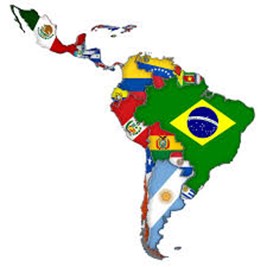CALL FOR PAPERS
The International Society of Intercommunication of New Ideas
in cooperation with
WSB MeritoUniversity in Wrocław (Poland) and the Power of Cooperation International (POCI)
organises a special session on
Cyber Security Economics and Management
WSB Merito University in Wroclaw, May 16-17, 2024.
This interdisciplinary session is organized as part of the 16th Conference of the International Society for Intercommunication of New Ideas (ISINI), to be held at WSB Merito University in Wroclaw, Poland, on Thursday 16 and Friday, 17 May 2024. The session is organized by Prof. André Dorsman, Prof. Joost Platje prof. Andrzej Bujak and prof. Wiesława Caputa.
Every time period has its own breakthrough event. In the twenties of the last century, it was the automotive industry. The eighties were marked by the rapid development of the personal computer, and nowadays, digitalisation of the society is a characteristic development. The digitalisation move can be traced in every economic sector. This introduces new opportunities but also new threats. It seems that we have to live with hacking attacks on our cyber systems and that we have to defend ourselves against such attacks. The Ukraine war started in February 2022 not only as a physical battle field, but also as a digital battlefield and was a wake-up call that the fast increase of digitalisation also goes with security weaknesses in, for example, the vital infrastructure.
The developments in terms of digitalisation are not equally distributed in the world. The European Union (EU) is not a leader but a follower in this segment. Large non-EU tech companies collect EU data and the EU has only limited control over the storage of these data.
In this panel, we will pay attention to three main cyber security economics and management issues. Papers and presentations are invited on the following issues:
- How to defend individuals, businesses, governmental institutions against cyber attacks
- How to defend our cyber security industry
- How to protect cyber security vital infrastructure
Ad 1 How to defend ourselves against cyber attacks
The first line of defense relates to keeping hackers out of the system as much as possible. However, when this first defense line is very though, the consequence can be that it will become too complex, which creates other problems. In other words, we have to face the probability that a hacker will succeed and can intrude in a system in a harsh way. How can we measure and control the economic damage when a hacker hits a system?
Ad 2 How to defend our cyber security industry
EU companies working in the cyber security market are niche players, and being relatively small, they are potential takeover targets. It is in the interest of the EU that the UBOs (ultimate beneficial owner) of these EU companies will be EU entities and -persons. How can this be established?
Ad 3 How to protect cyber security vital infrastructure
Among the parts of the vital infrastructure that have the special attention of hackers are the financial system and the energy supply. The financial system is facing serious attacks, and regularly, financial institutes have to report that for certain periods clients have no access to their internet system. Also, the supply of energy can be attacked by hackers. For example, at the beginning of the Ukraine war, Russia blocked some Western satellites to avoid that they would provide Ukraine with relevant information. Yet, these satellites were also necessary for more than 5,000 windmills in Germany, and these windmills stopped working instantly. Offline restarting these windmills caused in a substantial number of cases serious damage, and a year after the start of the war, 1,700 windmills in Germany were out of order. Elon Musk developed the satellites for communications and games, not as a tool for war. Using satellites for other goals than for the original ones seems to be a weak point in the fast-growing growing IT-industry.
Paper and abstract submission and acceptance for the conference will take place in the following five steps:
- Submission of abstract (30 March 2024).
- Acceptance of abstract (10 April 2024).
- Submission of paper for review (1 April 2024). This is an option for participants who would like to have their paper discussed at the conference and eventually published in the journal mentioned below. Also, without full papers, participants can present their work at the conference.
- Feedback on paper and notification of paper acceptance (10 April 2024).
- Submission of completed paper (28 April 2024).
Registration form: https://forms.office.com/e/zNZBwHcbbM
Selected papers, after positive double-blind peer review, may be considered for publication in the:
- Central European Review of Economics and Management (www.cerem-review.eu).
The conference fee of 120 euros (bank account data to be announced at a later stage) includes meals and coffee breaks during the conference. The fee does not include accommodation, but the conference organizers can help with finding a hotel.
To submit an abstract, please email a Word or PDF file to André Dorsman at


